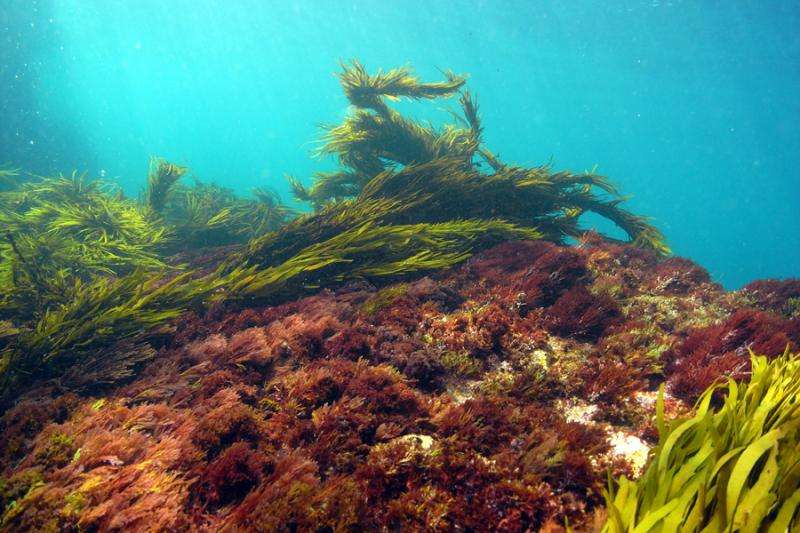Study backs seaweed's carbon capturing potential

There are great hopes for the potential of coastal plants and seaweeds to store carbon and help counter the effects of climate change and a new study is backing that potential.
Scientists from UTS and Deakin University have carried out the first investigation of how a diverse range of coastal plants and seaweed (macroalgae) can contribute to "blue carbon" stocks, the carbon in leaves, sediments and roots that is naturally captured, or sequestered, by plants in coastal habitats.
The finding, published in the prestigious Ecology journal, that some seaweed species have the capacity to make a significant contribution to coastal carbon capture may better inform projects designed to mitigate against greenhouse gas emissions.
According to, co-lead author Stacey Trevathan-Tackett, a PhD candidate in the UTS Plant Functional Biology and Climate Change Cluster (C3 ), these blue carbon systems are recognised as being more efficient than land-based systems for long-term carbon storage. But Ms Trevathan-Tackett said a better understanding of how the diverse range of coastal plants contribute to blue carbon "pools" was needed for both carbon accounting and coastal management purposes.
"We wanted to know how the fundamental biology, that is, the cell wall structure and cell wall composition of seaweeds and coastal vascular plants like seagrasses, affected their long term carbon storage potential in blue carbon habitats," Ms Trevathan-Tackett said.
"Macroalgae in particular are of interest because they generally produce a lot of biomass and are easily transported making them potential 'donors' to blue carbon stocks.
"However we don't know if this carbon is as chemically stable as that of coastal plant species or whether seaweed carbon can be stored long term in coastal habitats."
The research team used thermal analysis (Thermogravimetric Analysis) to quantify the decomposition of plant material under increasing temperature.
The results showed that cell wall structure and composition of seaweed in particular are central to their long-term carbon storage potential. In addition the discovery that some species of seaweed contained compounds that only degraded at very high temperatures means there is potential for a contribution to long-term carbon storage.
"This has implications for planning because the role of macroalgae as a donor to blue carbon stocks should be considered in coastal carbon sequestration and remediation projects," said fellow C3 PhD candidate and co-lead author Jeffrey Kelleway.
The project supervisor, Dr Alecia Bellgrove, a researcher from Deakin University's Centre for Integrative Ecology within the School of Life and Environmental Sciences, said the results of the study were exciting.
"Until now, seaweeds have been thought to break down rapidly and therefore not be significant contributors to long-term carbon sequestration," Dr Bellgrove said.
"However, what we have shown is that not all seaweeds are equal and some show great potential for long-term sequestration.
"There is enormous macroalgal biomass in our oceans and understanding where that all ends up and how much of it is locked away is the next big area of research to pursue."
The study forms part of a large coastal carbon accounting project being undertaken by researchers in eight Australian institutions under the CSIRO Marine Geochemistry Coastal Carbon Cluster initiative. The project was co-funded by Deakin University Centre for Integrative Ecology within the School of Life and Environmental Sciences.
More information: "Comparison of marine macrophytes for their contributions to blue carbon sequestration." Ecology. dx.doi.org/10.1890/15-0149.1
Journal information: Ecology
Provided by University of Technology, Sydney





















